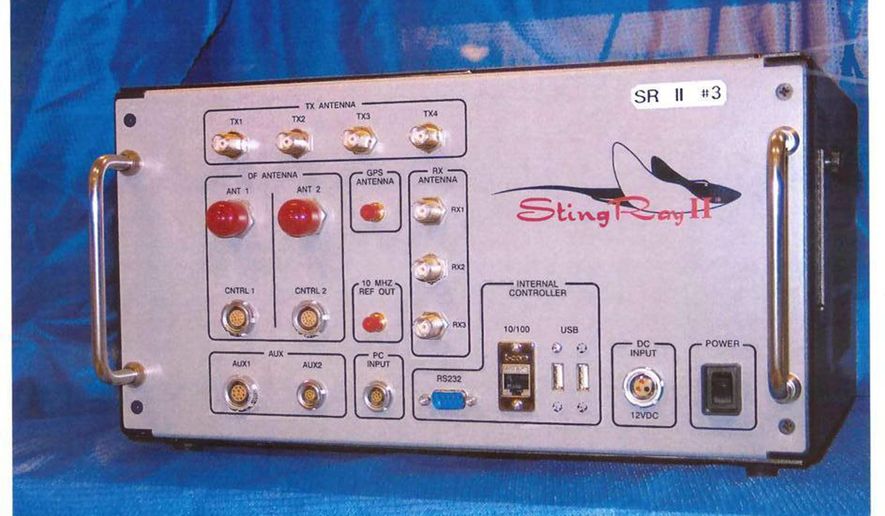Police in Alameda County, California, will have to wait to use state-of-the-art surveillance gear because officials postponed a vote to purchase it after local civil liberties advocates complained — a microcosm of an ongoing national debate about these devices.
The Alameda County Sheriff’s Office has asked lawmakers there to sign off on a $113,000 spy-tech upgrade that would increase the capabilities of the department’s IMSI catcher, a piece of machinery commonly referred to as a “StingRay,” which mimics the behavior of cellular phone towers in order to track the handsets, and locations, of criminal suspects.
Law enforcement in the East Bay already has at least one StingRay in its arsenal, but is hoping for an upgrade since cell phones on the AT&T network will no longer support the 2G infrastructure soon and won’t be as easy to track.
In turn, the Sheriff’s Office has asked the Alameda County Board of Supervisors for a sizable chunk from a previously allocated $6.2 million federal Urban Areas Security Initiative (UASI) grant to upgrade its technology, the likes of which was scheduled to be voted on during a meeting last Tuesday.
That same day, however, Alameda County Supervisor Scott Haggerty said that the board has postponed discussion of the sheriff’s proposal for another two weeks until it convenes next on Oct. 13, the East Bay Citizen reported.
Mr. Haggerty’s announcement came on the heels of calls made by the local American Civil Liberties Union office in an attempt to sideline the vote over concerns surrounding the technology’s broad implications. That same day, the ACLU of Northern California wrote a letter to the board urging officials to vote no on the authorization.
“Because the device also captures information from cell phones in the surrounding area that have nothing to do with any investigation, there are a number of constitutional concerns at play,” wrote Linda Lye, a senior staff attorney with the ACLU of Northern California, in a statement.
Concerns over the Fourth Amendment violations that may arise by deploying devices capable of collecting information on large groups of people prompted the Department of Justice to decide earlier this year that federal agencies must obtain a warrant before the technology is used, but that rule doesn’t apply to local offices like that in Alameda County.
Absent specific guidance for the Sheriff’s Office, the ACLU said signing off on the grant in question shouldn’t occur without first having a robust debate.
“The process to authorize the use of StingRays in Alameda County has been rushed and hasn’t created room for meaningful public discussion. The request for this intrusive device should not be approved without greater public input and a thorough cost-benefit analysis,” Ms. Lye said, adding that local law enforcement has a reputation for pursuing surveillance gear without inviting public opinion, evidenced last year by Sheriff Greg Ahern’s secret acquisition of two spy drones despite strong public dissent.
But according to documents acquired through the California Public Records Act, the ACLU may face an uphill battle with respect to winning over the County Board. Newly unearthed correspondence obtained by journalist Ali Winston at the Center for Investigative Reporting revealed this week that the office of State Attorney General Kamala Harris had endorsed the sheriff’s proposal last year and said that allocating funds to be used toward electronic interception equipment is “in the best interest of everyone who resides or works in the greater San Francisco East Bay area.”
Approval of the grant, her office wrote, “would enable local law enforcement agencies in the area to perform vital functions such as the prevention of and in response to a terrorist attack, tracking and apprehending serious violent offenders, capturing fugitives from justice and locating or recovering at-risk persons or kidnapping victims.”
Specifically, the Sheriff’s Office wants to purchase a Hailstorm, a type of IMSI catcher manufactured by Florida-based Harris Communications — the same company that sells the StingRay.
• Andrew Blake can be reached at ablake@washingtontimes.com.




Please read our comment policy before commenting.